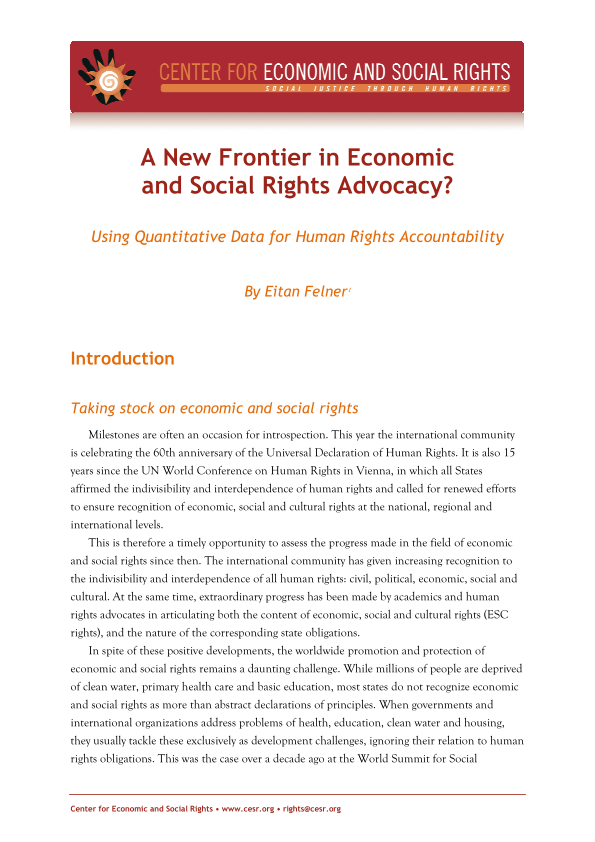Developing rigorous monitoring tools has been an uphill battle for human rights advocates working on economic and social rights. A major obstacle in developing such tools has been the manner in which state obligations have been defined with respect to economic and social rights. Under international law, states are required to take steps "with a view to achieving progressively the full realization" of economic and social rights "to the maximum of their available resources".
Some state obligations of immediate effect have also proven difficult to monitor. These include core obligations to ensure at least "minimum levels" of enjoyment of the essential elements of economic and social rights, such as access to essentia foodstuffs, basic health care and primary education. Another is the obligation to guarantee the exercise of rights without discrimination, particularly to reduce disparities resulting from the unfair distribution of goods and services.
Any adequate economic and social rights monitoring methodology must therefore take into account the contingent nature of ESC rights obligations reflected by the principles of "progressive realization" and resource availability, while providing tools for assessing compliance with minimum core standards and other immediate obligations. Such a monitoring methodology requires the use of quantitative tools not typically part human rights organizations' research tool kits, which in many cases were originally developed to monitor civil and political rights.
This discussion paper published by CESR and written by former Executive Director Eitan Felner, gives an overview of different ways to integrate simple statistical tools into the assessment of compliance and proposes a methodology for the monitoring of ESC rights.
